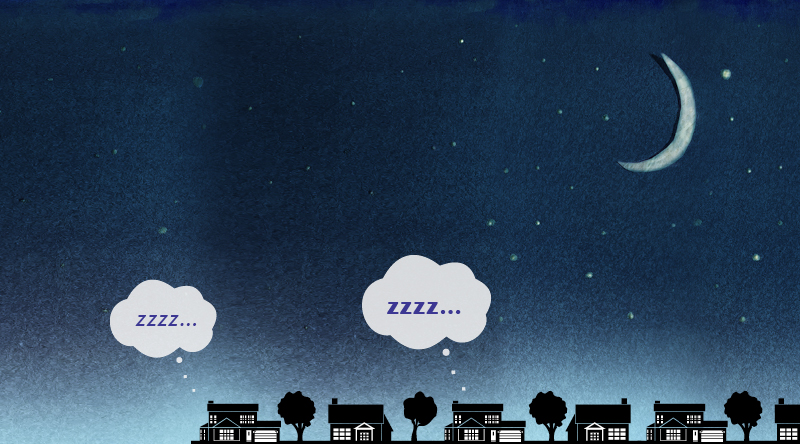Regardless of age or diagnosis, insomnia is one of the most common side effects cancer patients experience. That doesn’t mean it should be taken lightly. Insomnia should be discussed with your cancer team, as it can lead to other health issues. Fortunately, there are new and novel approaches patients can consider instead of sleeping medication.
Clare Sullivan, MPH, BSN, OCN, clinical program manager for Patient Education at Dana-Farber, recently answered questions about insomnia during a live text chat. Sullivan discussed ways patients can avoid sleep problems, as well as remedies they can try at home, without medication.
An excerpt of the chat is included below and a full transcript is available in Dana-Farber’s health library. 
Q: What can cause insomnia?
A: It’s common for patients to experience insomnia during and after cancer treatment. If insomnia is not treated, it can add to existing symptoms such as pain, fatigue and anxiety. Some causes include:
- Stress, anxiety, or depression
- Physical discomfort, such as headaches, nausea, vomiting, hot flashes, or pain
- Side effects from medication, chemotherapy or radiation
- Conditions such as acid reflux, thyroid issues, or bladder problems
- Unfamiliar environments or changes to routines, such as an overnight stay at the hospital
Q: Do certain cancer treatments or medications affect sleep more than others?
A: Patients who receive steroids as part of their chemotherapy treatment are more likely to experience sleep problems. If possible, try to take the steroids early in the day.
Other non-cancer medications that can affect sleep include:
- Mixed amphetamines for ADHD (e.g. Adderall)
- Beta-blockers for high blood pressure
- Albuterol for asthma
- Pseudoephedrine for allergies (e.g. Benadryl, Sudafed)
- Anti-depressants (e.g. Prozac)
Learn more:
Q: Is there anything I can do on my own to help my insomnia before I seek therapy?
A: First, make sure your oncologist or care team is aware of your sleep problems. It is important they are aware of any medical or psychiatric side effects of your treatment.
Here are some strategies you can try on your own:
Improve sleep behaviors
- Avoid eating heavy meals, spicy foods, or sugary items close to bedtime
- Avoid watching TV or working in the bedroom
- Remove electronic devices from the bedroom
- Make sure your bedroom is free from light and noise. Consider using earplugs or wearing a sleep mask
- Avoid smoking, and limit your caffeine intake
- Avoid drinking alcohol, especially 4-8 hours prior to bedtime
- Consider moving any clocks out of view of your bed
Improve sleep routine
- Go to bed and get up at the same time each day, seven days a week
- Limit daytime naps to 30 minutes and avoid napping in the late afternoon
- Get regular exercise, but don’t exercise within three hours of your bedtime
- Use your bed only for sleep and sexual activity
- If you can’t fall asleep, get out of bed, leave the bedroom, and return when sleepy
Consider relaxation strategies
- Effective types of integrative therapies to try at bedtime include: muscle relaxation, biofeedback, imagery, hypnosis, and thought stopping.
- Talk about fears and worries early in the day, not at bedtime
- Use deep breathing exercises to help you relax
- Try gentle yoga
- Try taking a warm bath or drinking chamomile tea to aid in relaxation
If these strategies are not working for you, please speak with your cancer team or call the Adult Survivorship Program at Dana-Farber (617-632-4523) to learn more about professional treatment from insomnia.
Q: Do you recommend any over-the-counter supplements to treat insomnia?
A: It’s important during cancer treatment that any sort of supplements you’re considering for insomnia should be thoroughly reviewed with your care team. Many of the supplements that are advertised for insomnia could interfere with your cancer treatment.
